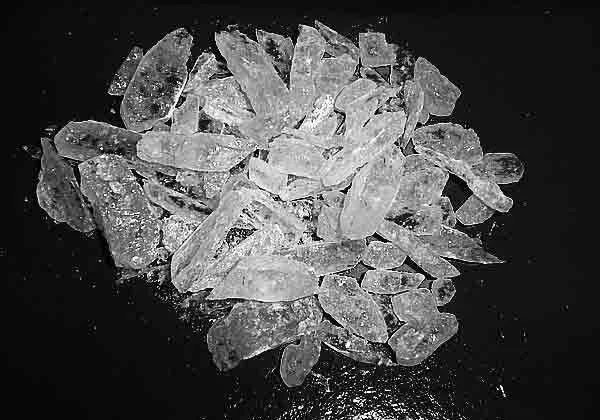Questions Asked Of The Police About Drug Proliferation
“It’s (drugs) always been here maybe we just haven’t realized the gravity of the problem” - Superintendent Taylor Mickleborough
The seemingly growing drug problem was an issue at Sunday evening’s Town Hall meeting put on the Good Neighbours Group.
It had attendees asking questions of the three members of the Moose Jaw Police Service (MJPS) about not only drug proliferation but also what was being done to stem the tide.
One question asked of the MJPS why was there more drugs in the community and how they are now everywhere than in the past.
“It wasn’t this bad 30 years ago. It’s everywhere now…what kind of consequences (will the low level people) face for selling these drugs?” an attendee asked.
“When I went to school it wasn’t there. When my daughter went to school it was everywhere,” she said, adding “things were different from when I grew up and my daughter grew up.”
Superintendent Taylor Mickleborough, speaking from his own personal perspective, said drugs have always been in the community it’s just people haven’t noticed.
“It’s always been here maybe we just haven’t realized the gravity of the problem,” Mickleborough said.
“I grew up in Moose Jaw…I spent a good part of my career working with drugs and trying to get drugs off of the street…from my perspective mam drugs have always been in Moose Jaw.”
The type of narcotics available has changed he said.
Crystal Methamphetamine - FBI free use media files
“I think the drugs have changed in Moose Jaw. The drug of choice has changed in Moose Jaw and the effects of that has had on people who are addicted has definitely changed and sometimes for the worse.”
Mickleborough spoke about 10 years ago when people were dying from morphine but “it wasn’t getting the same amount of press. It wasn’t getting a lot of press until you saw some hockey players, some NHL players die from opioid addictions.”
The issue of softer drug use came up later in the discussion and how it was widespread amongst Moose Jaw youth.
The change in the narcotics of choice was backed up by an anecdotal comment from a audience member that in the past youth were partying with cannabis and hashish.
Mickleborough said it wasn’t about arresting addicts to stem the tide. In fact it was the opposite.
“The best way we can combat the drug is build relationships with the folks most affected by that. With the folks who are addicted.”
Intravenous drug use - FBI free use media photo
Mickleborough said drug addiction was not a choice.
“Nobody in grade two when you ask them what they grow up say I want to be addicted to drugs.”
He said what gets lost when it comes to addiction are that the addicts are people too who often just chose a slightly different path in life.
Mickleborough said credit needed to go to the community that extra resources are allowing the MJPS to combat the proliferation of narcotics in the community.
“The perception might be its out of control and we (the MJPS) aren’t doing anything. But I can assure you that…our drug projects doubled last year and we were able to a lot more proactive work in that area,” he said.


